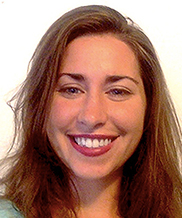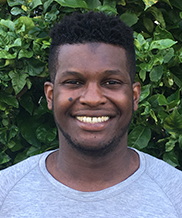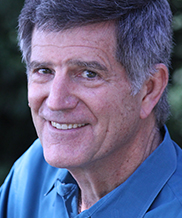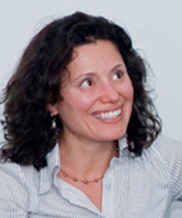Human Sense-Making of Engineered Systems
 Megan French, Social Media Folkonomies. Megan’s work on folk theories of social feeds has examined people’s implicit beliefs about how the Facebook News Feed and Twitter feed operate. Leveraging people’s use of metaphors, she has found that there are four core folk theories for social feeds that tap into people’s evaluation of a system, how they think the system works, and their beliefs about the system’s intent.
Megan French, Social Media Folkonomies. Megan’s work on folk theories of social feeds has examined people’s implicit beliefs about how the Facebook News Feed and Twitter feed operate. Leveraging people’s use of metaphors, she has found that there are four core folk theories for social feeds that tap into people’s evaluation of a system, how they think the system works, and their beliefs about the system’s intent.
Megan French is a PhD student in Communication at Stanford. She is interested in how people understand online environments and how one’s perceptions affect the way they engage and relate to others within cyber-social systems, such as social networking sites, online dating sites, and peer-to-peer platforms. Her work focuses on people’s expectations surrounding their interactions online, including expectations for response when posting on social media, as well as people’s beliefs about the role of algorithms, such as the Facebook News Feed, in mediating those online interactions.
 Leonard Medlock, Making Sense of Teamwork in Remote Collaboration. Leonard’s work explores how productivity and contextual measures of engagement (e.g. number of questions answered or ideas generated) are affected by differences in physical space, technological capability and cultural interactions across distributed teams. He has co-created frameworks and software tools that help make these conditions transparent and explicit across teams.
Leonard Medlock, Making Sense of Teamwork in Remote Collaboration. Leonard’s work explores how productivity and contextual measures of engagement (e.g. number of questions answered or ideas generated) are affected by differences in physical space, technological capability and cultural interactions across distributed teams. He has co-created frameworks and software tools that help make these conditions transparent and explicit across teams.
Leonard Medlock is a Director at EdSurge, where he leads the Concierge program, a match-making service between K-12 schools and districts and education service providers. Previously, Medlock was a coach and lecturer at the Stanford d.school and a Research Assistant at Stanford’s Project Based Learning Lab, where his work on global teamwork and collaboration was published in the International Journal of AI & Society. Medlock teaches graduate courses on designing for social impact at Claremont Lincoln University. He is a 2015 Pahara NextGen Fellow and holds a M.A. from the Stanford Graduate School of Education in Learning, Design and Technology and a B.S. in Mechanical Engineering from Duke University.
 Kendall Haven, Your Brain on Story. Haven’s research has confirmed that the brain is physically hardwired to make sense in specific story terms and in specific character-based story structures. Identifying this Neural Story Net and the Eight Essential Story Elements it uses to perform its Make Sense Mandate has led to insights into how brains automatically make sense of new information and experience, and of the dominant elements that control how we create meaning from that information.
Kendall Haven, Your Brain on Story. Haven’s research has confirmed that the brain is physically hardwired to make sense in specific story terms and in specific character-based story structures. Identifying this Neural Story Net and the Eight Essential Story Elements it uses to perform its Make Sense Mandate has led to insights into how brains automatically make sense of new information and experience, and of the dominant elements that control how we create meaning from that information.
Kendall Haven is a mediaX Distinguished Visiting Scholar. Haven is the only U.S. Military Academy at West Point graduate to turn professional storyteller. Now a master storyteller, Haven has performed for over 6 million worldwide during his 30 year career and has led the research effort for the National Storytelling Assn. and International Storytelling Center into the architecture of effective story structure and into the process of story-based influence and persuasion. Haven was the only storyteller or story writer recruited as part of the recent U.S. Department of Defense DARPA research program to explore the cognitive neurology of how stories exert influence.
 Moderator: Karina Alexanyan, mediaX at Stanford University. Karina is the Member Benefits Manager with mediaX at Stanford University. Dr. Alexanyan’s research background is in global social media networks, technology, and education. She has consulted for leading academic, corporate and non-profit clients, including Stanford, Harvard and Columbia Universities. Alexanyan holds a PhD in Communications from Columbia University School of Journalism, a M.A. in Communication from NYU and a BA in Linguistics and Modern Languages from the Claremont Colleges.
Moderator: Karina Alexanyan, mediaX at Stanford University. Karina is the Member Benefits Manager with mediaX at Stanford University. Dr. Alexanyan’s research background is in global social media networks, technology, and education. She has consulted for leading academic, corporate and non-profit clients, including Stanford, Harvard and Columbia Universities. Alexanyan holds a PhD in Communications from Columbia University School of Journalism, a M.A. in Communication from NYU and a BA in Linguistics and Modern Languages from the Claremont Colleges.